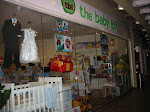Health Issues
Disposable diapers contain synthetic chemicals and their by products. Examples:
- Dioxin - an extremely toxic by-product of the paper-bleaching process in the manufacturing of diapers. Dioxin is a known carcinogen toxin that causes cancer. The EPA has lists it as the most toxic of all cancer chemicals and is banned in some countries but not in USA.
- Sodium polyacrylate - This is the chemical added in powder form to the inner pad of a disposable to make it super absorbent. When wet, this polymer will be transformed into a gel-like beads in the diapers. Sometimes, traces of this gel beads can be found on baby's bottom when changing the baby. This polymer can cause skin irritations and severe allergic reactions including vomiting, infections and fever. It was banned from tampons in 1995 because of its link to Toxic Shock Syndrome.
- TRIBUTYL TIN (TBT) - An environmental pollutant considered highly toxic. It spreads thorugh the skin and has a hormone-like effect in the smallest concentration. It harms the immune system and impairs the hormonal system.
- Widespread diaper rash - According to the Journal of Pediatrics, 54% of one month old babies using disposable diapers had rashes. Several independent medical studies found an astounding increase in diaper rash from 7% in 1955 to 78% in 1991. Critics of disposables say this parallels the increase in usage of disposables. Reasons of diaper rash has been cited as allergic to chemicals, lack of air, higher temperature because plastic retains body hear and babies are probably changed less frequently because they feel dry and not wet and are thus subject to bacterial growth and the ammonia from the accumulated urine in the diaper.
- Disposables have also been linked to cause asthma.
- Fertility concerns - A 2000 German study found out that disposable diapers raised the temperature of the scrotum far above body temperature anc can lead to a total breakdown of normal cooling mechanism. This may have effect on fertility in the future.
- Over 27 billion disposable diapers are put in landfills in countries around the world.
- A single disposable diaper may take up to 500 years to decompose.
- In a house with a child, disposable diapers make up almost 50% of household waste.
- Disposable diapers when thrown in landfill may contaminate the water and may cause many diseases.
- Disposable diapers use 20 times more raw materials.
- Cloth diapers are much kinder to the environment.
Money is always an important consideration when choosing diapering system. In fact disposable diapers are one of the highest perpetual expenses hidden away in the monthly expenditures of families with diaper age children.
The savings associated with using cloth diaper is phenomenal. This saving is enhanced when the diapers are used for another baby. With cloth diapers, although it is expensive initially, but in the long run it will save you a lot of money.
Consider this:- A baby will need around 6,000-8,000 diapers during the first 3 years of his life before potty trained. The following is the average cost of cloth diapers over a 2 1/2 years period that is approximately 7,000 diaper changes. The cost are as follows:
Cloth Diaper
| 12 AIO Small (including soaker) | 12 X RM63 = RM756.00 |
| 24 AIO Medium/Large (including soaker) | 24 x 73.50 = RM1,764.00 |
| TOTAL for 2 1/2 years | RM 2,520.00 |
Disposable diapers
| Disposable diapers | 7,000 x 0.60 sen = RM 4,200.00 |
For a family of 3 children, the costs of the 2 systems will be as follows. For simplicity, we have assumed that the cost of diapers will remain the same.
| Cloth Diapers | Disposable Diapers | |
| 1st Child | RM2,520 (USD 666) | RM4,200 (USD 1,117) |
| 2nd Child | Nil | RM4,200 (USD 1,117) |
| 3rd Child | Nil | RM4,200 (USD 1,117) |
| Total | RM2,520 (USD 666) | RM12,600 (USD 3,351) |
Early Potty Training
As babies grow older, they are more aware of the difference being wet and dry. According to an article in the Wall Street Journal, babies diapered with disposables, diapers an average of 36-42 months whilst cloth diapered babies diapers for 24-30 months. This makes babies in cloth diapers potty train a year earlier than those using disposable diapers.



1 comment:
Have you ever tried soap nuts for cleaning cloth diapers? I find them to be the best for getting the smells out.
Post a Comment